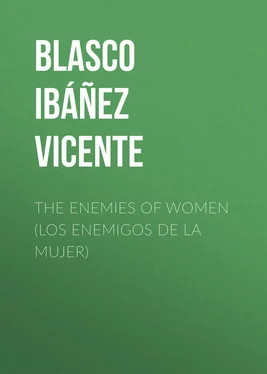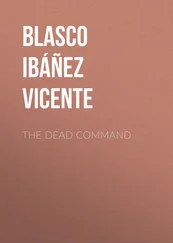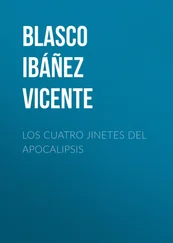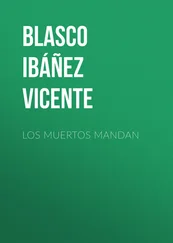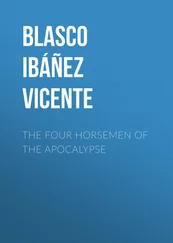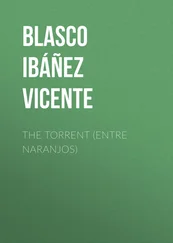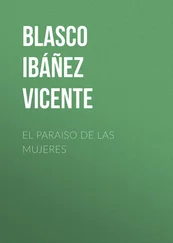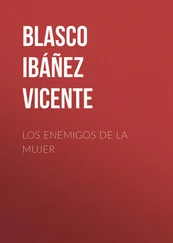Vicente Blasco Ibáñez - The Enemies of Women (Los enemigos de la mujer)
Здесь есть возможность читать онлайн «Vicente Blasco Ibáñez - The Enemies of Women (Los enemigos de la mujer)» — ознакомительный отрывок электронной книги совершенно бесплатно, а после прочтения отрывка купить полную версию. В некоторых случаях можно слушать аудио, скачать через торрент в формате fb2 и присутствует краткое содержание. ISBN: , Жанр: foreign_prose, foreign_antique, foreign_language, на английском языке. Описание произведения, (предисловие) а так же отзывы посетителей доступны на портале библиотеки ЛибКат.
- Название:The Enemies of Women (Los enemigos de la mujer)
- Автор:
- Жанр:
- Год:неизвестен
- ISBN:http://www.gutenberg.org/ebooks/38458
- Рейтинг книги:3 / 5. Голосов: 1
-
Избранное:Добавить в избранное
- Отзывы:
-
Ваша оценка:
- 60
- 1
- 2
- 3
- 4
- 5
The Enemies of Women (Los enemigos de la mujer): краткое содержание, описание и аннотация
Предлагаем к чтению аннотацию, описание, краткое содержание или предисловие (зависит от того, что написал сам автор книги «The Enemies of Women (Los enemigos de la mujer)»). Если вы не нашли необходимую информацию о книге — напишите в комментариях, мы постараемся отыскать её.
The Enemies of Women (Los enemigos de la mujer) — читать онлайн ознакомительный отрывок
Ниже представлен текст книги, разбитый по страницам. Система сохранения места последней прочитанной страницы, позволяет с удобством читать онлайн бесплатно книгу «The Enemies of Women (Los enemigos de la mujer)», без необходимости каждый раз заново искать на чём Вы остановились. Поставьте закладку, и сможете в любой момент перейти на страницу, на которой закончили чтение.
Интервал:
Закладка:
"All the sins on the one hand are redeemed on the other." Saying this, Novoa pointed to the huge Casino, with its multi-colored domes and towers, rising from the table-land of Monte Carlo. Then tracing with his finger an imaginary arc above the harbor, he paused when it pointed to the eminence on the left, where, on the cliffs of Monaco, a large square edifice rose, the walls of which descended to the water's edge. It was the Museum of Oceanography, a fine new building in stone that, in that atmosphere so seldom streaked with rain, still retained its waxy whiteness.
Don Marcos smiled at the contrast. "Don Atilio says the same thing. Every time he gazes at the view from here, he looks at the two buildings separated by the mouth of the harbor, and occupying the two promontories. He says the one justifies the other, and adds: 'They are …' What is it he says? – an antithesis. No; it's something else."
The metallic booming of a gong drifted through the trees from Villa Sirena, summoning the guests, who were scattered through the park, or had not appeared as yet from their rooms. The Colonel listened with pleasure: "Luncheon!"
He gave a last look at the two enormous buildings, one of them bristling with sharp and many colored pinnacles, the other plain and square, of uniform whiteness. Between the promontories, at the water's surface, two new breakwaters meet, closing the mouth of the harbor. At the outermost extremity of each is a beacon: one red, the other green.
The Colonel tapped his brow and looked at his compatriot with a smile. "Oh, yes, I remember. He says the Casino and the Museum are a symbol."
The little group which Castro had labelled "Enemies of Women" had now been in existence two weeks with no disharmony and no obstacles to the perfect happiness of the members. Complete freedom was theirs! Villa Sirena belonged to them all, and the real owner seemed merely like an additional guest.
Arising late in the morning, Castro saw the Prince in a corner of the garden with his shirt open at the neck and his bare arms wielding a spade. The thing that made the new life complete for him was the cultivating of a little garden, and having the gratification of eating vegetables and smelling flowers that were the product of his own toil. This man who had always been surrounded by a corps of servants to attend to all his wants, was anxious now to be self-dependent, and feel the proud satisfaction of one who relies entirely on his own hands. Vainly he invited Castro to join him in this healthy, profitable exercise, which was at the same time a return to primitive simplicity.
"Thanks; I don't care for Tolstoi. As far as the simple life goes this is all I want." And he stretched out on the moss, under a tree, while the Prince went on digging his garden. They talked for a while of their companions. Novoa was in the library, or wandering about the park. Some mornings he would take the early train for Monaco to continue his studies at the Museum. As for Spadoni, he never arose before noon, and often the Colonel would have to pound on his door so that he would not be late for lunch.
"He never gets to sleep until dawn," said Castro. "He spends the night studying his notes on the way the gambling has been going. He gets into my room sometimes when I'm asleep, to tell me one of his everlasting systems that he has just discovered; and I have to threaten him with a slipper. In his room, among the music albums, he keeps piles of green sheets that give each day's plays for a year at all the various tables in the Casino. He's crazy."
But Castro took care not to add that he often asked Spadoni to lend him his "archives" in order to verify his own calculations; and in spite of his making fun of the latter's discoveries, he used to risk a little money on them, through a gambler's superstition that attaches great value to the intuitions of the simple-minded.
After luncheon, Castro and Spadoni would both hurry off to the Casino. The Prince, when not attending a concert, remained with Novoa and the Colonel in a loggia on the upper story, looking out over the sea. The war had filled that part of the Mediterranean with shipping. In normal times the sea presented a deserted monotonous appearance, with nothing to arrest the eye save the wheeling of the gulls, the foamy leaps of the dolphins and the sail of an occasional fishing boat. The steamers and the large sailing vessels were scarcely ever to be seen even as tiny shadows on the horizon, following their course direct from Marseilles to Genoa, without following the extensive shore line of the Riviera gulf. But now the submarine menace had obliged the merchant ships to slip along within shelter of the coast. Convoys passed nearly every day; freighters of various nationalities, daubed like zebras to reduce their visibility, and escorted by French and Italian torpedo-boats.
These rosaries of boats so close to the coast that one could read their names and distinguish their captains standing on the bridge, caused the Prince and the Professor to talk of the horrors of war.
At times the Colonel entered the conversation, but only to lament the difficulties which such a war presented to the fulfillment of his duties as steward. Each day his task was becoming more difficult. He was no longer able to find anything worth serving at a table like that of the Prince, and even so, the prices that he paid roused his indignation when he compared them with those of peace times! And the servants! He had sent to Spain for some, now that all those from the district were in the army; but the hotel proprietors had immediately enticed them away. They all preferred to serve in cafés or in places where people are continually coming and going, tempted by the chance of getting tips and of associating with the white-aproned chamber-maids.
He had improvised dining-room service with the two Italian boys from the Brodhigera, whose families were living in Monaco. The older and livelier of the two had the name of Pistola, and treated his companion in despotic fashion, bullying him with kicks and cuffs when the Colonel's back was turned. Atilio, for the sake of the rhyme, had nicknamed Pistola's comrade, Estola, and every one in the house accepted the name, even the boy himself.
"When you think of the work it cost me to make decent respectable looking servants out of them!" groaned Toledo. "And now it seems that they are going to be called back to Italy as soldiers. More men off for the war! Even these young lads that haven't reached the age yet! What shall we do when Estola and Pistola go?"
Many evenings, at the dinner hour, the rules of the community were rudely broken. The first to desert was Spadoni. He arrived sometimes after midnight, saying that he had dined with some friends. At other times he did not return at all. After a few days had gone by he would quietly appear, with the serene ingenuousness of a stray dog, just as though he had gone out only a few hours before. No one could ever find out exactly where he had been. He himself was not sure. "I met some friends." And in the same half hour, these friends would be at one moment some Englishmen from Nice, or at another a family from Cap-Martin, as though he had been in both places at the same time.
Atilio also used to absent himself. A gambling companion had shown him, in the Casino, the little cards divided into columns, which are used to note the alternating frequency of "red" and "black." Various ladies had taken similar documents from their hand-bags, where they lay among the handkerchiefs, the powder boxes, the lip sticks, the banknotes, and the various colored chips, which are used as money in the gaming. The indications all agreed. During the morning and afternoon the "bets" were all lost, and the house was winning; but from eight o'clock in the evening on, undreamed-of fortune smiled on the players. The statistics could not be clearer; there was no possible doubt. And Castro would renounce the excellent food of Villa Sirena, satisfied with a glass of beer and a sandwich at the bar. Then at midnight he would return in a hired carriage, paying the astonished driver with prodigality. At other times he would stand in front of the gate fishing in his pockets to get together enough to pay for the cab. Fate had lied. Nor, on those occasions, would any of the prophets of the little cards have been able to lend him a cent.
Читать дальшеИнтервал:
Закладка:
Похожие книги на «The Enemies of Women (Los enemigos de la mujer)»
Представляем Вашему вниманию похожие книги на «The Enemies of Women (Los enemigos de la mujer)» списком для выбора. Мы отобрали схожую по названию и смыслу литературу в надежде предоставить читателям больше вариантов отыскать новые, интересные, ещё непрочитанные произведения.
Обсуждение, отзывы о книге «The Enemies of Women (Los enemigos de la mujer)» и просто собственные мнения читателей. Оставьте ваши комментарии, напишите, что Вы думаете о произведении, его смысле или главных героях. Укажите что конкретно понравилось, а что нет, и почему Вы так считаете.
